Supertramp - Interview
by Lisa Torem
published: 6 / 10 / 2010
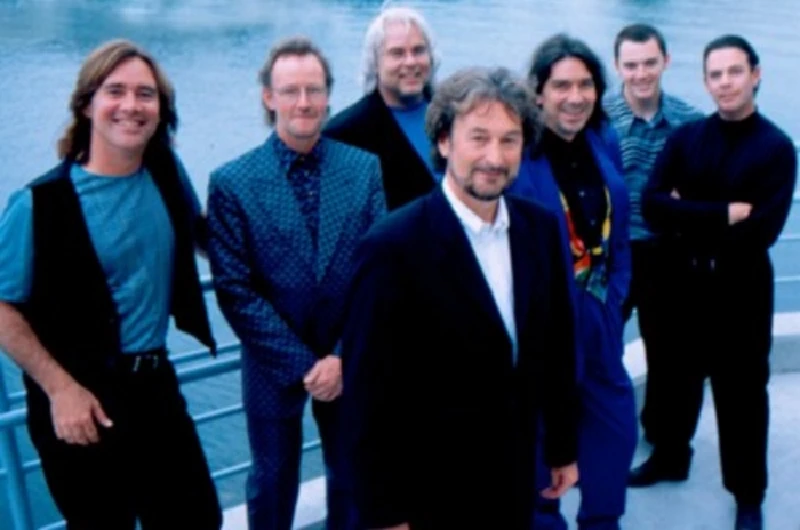
intro
John Helliwell, the woodwind player with Supertramp, speaks to Lisa Torem about his band's fortieth anniversary tour and the re-release of its classic 'Breakfast in America' album
Kate Murtagh, dressed as a waitress, holds a glass of orange juice high above her head; a stand-in for the Statue of Liberty’s flaming torch. Her friendly smile glimmers from the window of an airplane soaring over the New York City skyline. But, a further glance reveals that this modern island is made of a cardboard cereal box, silverware and condiment containers spray painted white. The breakfast plate reveals Battery Park, the gateway to Staten Island; a historical hub for thousands of immigrants. If you’re excited, about your journey, you’re not the only one. Supertramp’s sixth album, 79’s 'Breakfast in America' ultimately sold six million copies in the US alone and over 18 million worldwide. That comical album cover won a Grammy for Best Recording Packaging and Best Engineered Album, Non-Classical. It featured the Wurlitzer electric piano which was soon to be recognized as the band’s trademark sound. The theme song, was very bouncy, very British and clocked in at 2:30. The longest track, ‘Child of Vision’ was a whooping 7:25 The album included: four major hits; ‘The Logical Song’, ‘Take the Long Way Home,’ ‘Goodbye Stranger,’ and ‘Breakfast in America’. The band is currently reissuing this groundbreaking album which will include a second disc of previously unreleased live recordings from the late seventies. Sleeve notes by MOJO editor, Phil Alexander will also be added. In addition, the band is commemorating the date of this first release, 40 years ago, with their current European ’70-10’ Tour. Woodwind player, John Helliwell, is speaking to Pennyblackmusic from Frankfurt, Germany, where the band is half-way through their ambitious European tour. Helliwell initially joined up in 1974, and helped created the dynamic tracks of 'Crime of the Century'. Though he claims he’s being treated quite well on this leg of a very exclusive tour, Helliwell seems unaffected by the pampering, eager to reminisce and extremely affable. Ironically, even after playing arenas filled with 10,000 fans, what really motivates this man is a chance to socialize and a decent breakfast. PB: Your line-up is pretty much the same as when Supertramp toured in 2002, except now you have Gabe Dixon on keyboards. JH: Yeah. We got Gabe and we’ve still got Jesse Seibenberg on percussion and vocals. They’re the two voices that can do Roger Hodgson’s songs and we’ve also got a trumpet player from ’97 back, Lee Thornburg, and we’ve also got a girl singer to help with the background vocals, Cassie Miller. Mark Hart, who has been playing with Supertramp for twenty years or so, he couldn’t make it because he’s busy with Crowded House. PB: Lee was with Etta James and Ray Charles. Isn’t there a lot of blues and jazz influence in your line-up? JH: Well, there is. Yeah, our bass player, Cliff Hugo, played with Ray Charles for two years, way back. Yeah, there is a jazz influence, but we’re still playing our music. We’ve got the trumpet and sax player which is quite nice. We’re playing Supertramp music, but it’s very sophisticated in the way that we can put it across, especially with the extra vocals that we’ve got now. We’ve got it really good on the background singing. It’s really made a difference. We’re able to do some numbers now that we couldn’t really do properly before. One example would be ‘Gone Hollywood’ from 'Breakfast in America'. We’re doing a really good version of that now. We haven’t been able to in the past. We tried it once, but – I think it was in 1983 – it didn’t work properly. PB: Would you consider touring another Supertramp album, for example, 'Crime of the Century'? JH; We haven’t done a concert which specifically promoted 'Crime of the Century' since 1974 or 1975. But, it’s just included and it’s a very, big part of our oeuvre, and we do quite a few numbers, from 'Crime of the Century'. We do ‘School’, we do ‘Dreamer’, we do ‘Rudy’ and ‘Crime of the Century’ itself. So, it’s always been a big part of our set. PB: You dressed as Spiderman for ‘Fool’s Overture’ with a speech of Winston Churchill blaring in the background. What is the stage presentation like these days? JH: Ah, right. You were talking about ‘Fool’s Overture.’ Actually, a lot of members of the crew, or whatever, they would dress up as a banana or a gorilla; all sorts of things were happening in ‘Fool’s Overture.’ So our presentation. Nowadays, we don’t use those kinds of props, now. We have bits of film; some of which we’ve been using for years and years. There’s a film of a speeded-up train journey in ‘Rudy.’ We still use that. We also have a presentation where you go sort of flying through space and you come on the bars from ‘ Crime of the Century’. There are a few visual aids. PB: I had read a review of your 1975 alabum ‘Crisis, What Crisis?’ in which critics had said it left a lot of room for instrumentals. How are instrumentals being received live? Are they received as well as tunes that primarily revolve around vocal lines? JH: Oh, yes. No, we don’t do any song that’s completely instrumental – they‘re all songs, you know. But, there are solo parts, especially there are some guitar solo parts. There’s a big solo from Rick when we do ‘Another Man’s Woman.’ There are quite a few solos in different numbers from me on the sax. There’s a little trumpet solo in some numbers, which we haven’t done for many, many years and it’s called: ‘Poor Boy.’ That’s from ‘Crisis’ and, on the original recording, that is Rick singing, playing and making a noise like a trumpet, but now we have a real trumpet; Lee Thornburg can play that. PB: I love the combination of the keys and the sax. But, you don’t hear that much these days. It’s a great combination. JH: It is. I have to say that. I play the saxophone. It’s more unusual in a rock group to have a sax player. You know, Springsteen did, Roxy Music. There are quite a few that have. But, the majority of rock groups are guitar and/or keyboard oriented. It’s just another voice that you can have, you know? One of our trademarks, I guess, just having me in the band, especially if I’m playing clarinet because that’s very unusual. PB: That is unusual. JH: …in rock music. There are little bits in about six numbers, but it’s quite prominent in the song, ‘Breakfast in America,’ for example. PB: How do you come up with the brass arrangements? Do you read charts? JH: No, we’re not reading charts. We just work it out at rehearsals, just play together, whether it’s in unison or harmony. We like to keep it reasonably simple. I think that’s the thing with Supertramp. We don’t really go overboard and bore people with playing things too long. We like to keep it a bit more succinct. PB: Yet, back in the day, it was fairly common to play lengthy songs. You couldn’t get away with that on the airwaves now. I think the audience loves hearing this during the live performance where there’s the freedom to get into the number. JH: Yeah, it’s good. We like to tell a story. You know. PB: What’s your favourite song on the set list? JH: Of the songs. Yeah. ‘Rudy’s’ good, because I mentioned about the train journey that takes place at the end. There’s an instrumental section and that’s nice visually. There’s a song ‘From Now On’ that comes over really well. Stories? Hmmm. Interesting. I think the tunes are more observational than telling a complete story like a saga. PB: Then, what songs give you the most latitude as a sax player? JH: Just physically, ‘Bloody Well Right’ does because I have a solo with Lee Thornburg at the end and also a piece again at the end where I’m playing completely on my own, so it’s completely up to me, and ‘From Now On’ is quite good. I get a nice, improvisation section there and at the end of ‘Gone Hollywood’ it’s quite good and, in between in ‘It’s Raining Again,’ I get some blowing there. I do several other numbers, too, but these seem to be the ones that are slightly lengthier. PB: Does the band have plans to record after the tour? JH: There aren’t any plans at the moment. Nothing specific, but there’s talk of touring late next spring, but I’m not sure where or whether it’s going to be North America or not. I would like that. Canada is a potential place that I would like to go, but there are no plans yet. Next summer, doing some of the festivals, either in Europe or North America, would be good. It would be good to keep this band going because it’s beginning to sound really good. PB: You’ve got a really loyal group that keeps coming back to tour. What did you do in early 2002 when the band was not playing? JH: Me, personally? In 1992 I moved back to the UK, to do some studying. Then, I got involved with two Supertramp albums, etc., etc., After 2002 I carried on with my music. I have a jazz group. PB: Crème Anglaise? I hope I’m pronouncing it correctly. JH: Yeah. I made a CD. There is a CD also called 'Crème Anglaise' which I’m very proud of. I play with that group, occasionally, not always with Mark Hart, who is in it, because he’s so far away, but because jazz gigs don’t pay much. They don’t even pay enough to get him to Pasadena rather than from LA to Manchester, or wherever (Laughs). But, I’ve also enjoyed playing in recent few years with people on the continent, too; Germany, France and Italy. I play some small jazz venues in Italy, occasionally and I’ve been playing with Alan Simon who kind of writes gigantic rock operas. PB: 'Excalibur'? JH: You know about that? PB: Yeah. That sounds fantastic. JH: So, I’m going to do some more in January. That was touring in Germany last January. There are some more projects with Alan Simon. Then, I work with the German drummer called Leslie Mandoki who has a group called Soulmates – where he gets together major rock performers and jazz performers, and does concerts. So, I’m quite happy just doing what I like, really. It’s quite nice to go and play with someone like that because I don’t have the responsibility. I just go and play and get treated well and come away again. PB: Will 'Excalibur' come to the States? JH: I don’t know. I have no idea. There was an 'Excalibur' ten years ago and now it’s 'Excalibur II' or 'III', but the last tour was just Germany. They’re trying to expand it. We’re doing some German dates, and if I can do it, while working with Supertramp, some dates in France and Switzerland, in the spring and then taking it from there. But, that’s quite spectacular; 80 people on stage, including lots of dancers, orchestra, vocalists, knights in armour, two horses, aerial artists, and a German narrator. There’s so much going on in that it’s quite a lot of fun. PB: Supertramp has worked with a number of producers; Geoff Emerick, Ken Scott. How did you decide each time which one to use? JH: It started off when we were doing 'Crime of the Century', For some reason, it was very difficult to get Ken Scott; he said no.Our manager persisted and got him down to where we were rehearsing and he liked the music. He was very instrumental in getting our sound down on discs. He was very meticulous with the sounds. It was a really good relationship and we continued that in 'Crime of the Century'. For our 1977 album 'Even in the Quietest Moments' there was, I think, and I might be wrong, but I think that his manager was asking for too much money, or something, and we thought, let’s just try somebody else and, interestingly enough, we found Geoff Emerick, but when we were doing the recordings, Geoff Emerick couldn’t come. He was doing another project. He sent Pete Henderson, who was his young assistant. We got on really well with Pete and then Geoff Emerick came for the mixing of 'Even in the Quietest Moments' in LA. He was okay and he was there, but it was mostly Pete that we did the work with. So, when it came time for the next album, which was 'Breakfast in America', we just went to Pete and not Geoff, just because we had this relationship with Pete Henderson. So, we did 'Breakfast in America' and he did the live album and then he did the next album, 'Famous Last Words', so that was a good relationship. And, he was instrumental in getting the sound that I always say, it sounds good anyway, we continued our hi-fi approach, but he got the sound that sounded really good on the radio, which was very helpful for getting all those hits, and getting it out to people. So, we’ve had good relationships with him, less so with David Kirshenbaum; he worked on a couple of our albums. We’d gotten more mature and Rick was doing more producing by then. And, then, more or less, the last few albums have been self-produced. PB; Has that been the right decision? JH: Yes, it’s been alright. Things have progressed, but those two, Ken and Pete, were very much responsible for the Supertramp sound. PB: John, there has recently been some controversy about the usage of songs during concert performances. Are you willing to talk about that? JH: Yeah, sure. PB: People in a band work out material; they work very closely. What is your feeling about that? JH: Right. The songs that Supertramp recorded and performed in the 70s, all the songs were written by Rick and Roger. But, as in those relationships, they’ve got both the names on the song and, in fact, some were written together and some were written separately and then brought to the group to have their final, how to dress them, how to put them out. The group’s involvement was very strong, in all those songs of Rick and Rogers. And, Roger Hodgson is not happy at the moment with the fact that Supertramp now is going out and doing some of these songs. He thinks it’s a betrayal and my take on it is this. If I were playing with Crème Anglaise or if Bob Dylan went out, or Chicago, as a group, whatever, they could play a Supertramp song. Anyone in the world can go out and perform a Supertramp song if they want. No one can stop them and it’s quite valid if some singer, if Joni Mitchell wants to go sing, ‘Dreamer,’ or (laughs). You know what I mean? So, anyone can play a Supertramp song. So, my point is why can’t we play? Who better to play a Supertramp song than Supertramp? We do now play Roger’s songs, although, when we first went out with the 195 album, 'Brother, Where You Bound', the first album after Roger left, then we didn’t play any of Roger Hodgson’s songs and we got a lot of criticism then from the fans. ‘Why aren’t you playing ‘Dreamer?’ Why aren’t you playing ‘The Logical Song?’ So, we put a couple in and Mark Hart sang them. So, we’re just continuing in the tradition and we are playing, I think seven, might be six of songs at least, by Roger and we think that that’s entirely valid because it’s Supertramp going out there and the fans come to the concert and they want to hear some Supertramp numbers. So, that’s basically it. PB: Do you see Roger, at some point, showing up on tour, and performing some songs with you or will you both maintain separate careers? JH: I don’t think that will happen, because before this tour ever got going, there were talks between Rick and Roger about doing a tour, which apparently were going along fine for a while and they just completely broke down and so there’s a kind of rift appeared there between Rick and Roger, and I don’t know whether it’s insurmountable or not but it doesn’t look likely that Roger will join us on this tour. He’s doing his own thing and playing in Europe at the moment. But, we haven’t seen him. PB: After all of these years touring, can you share any of the great moments? JH: The great moments? I’ll tell you the great moments. There’s a breakfast gang, people who stay in bed, have their breakfast in bed. There’s a breakfast gang of about six of us. The accountant and the tour manager, Carl Verheyen, Cliff Hugo, Lee Thornburg, myself, are the ones who would get up and have breakfast, like we’ve done today, and have a hang in the breakfast room about this and that, that’s good. Then, typically, there’ll be a little time off, go walk or something. Mid-afternoon, we set off to drive to the airport during this tour, in the highest sort of style that we’ve ever done, or any tour, and that’s by private jet. PB: Nice. JH: So, we drive to the airport, which might be half an hour, get on the jet, go to the next city, which usually only takes about half an hour, drive straight to the gig, and get there a quarter of an hour before sound check time, do the sound check, which is good, and then have a small bit to eat - some fantastic food. These people that are travelling with the band and doing the food at all the concerts are called 'Eat Your Heart Out'. PB: That says it all. It’s a good name for an album, too. JH: Yeah. And, then, wait an hour or two and do the show, and then, unusually, we call it “doing a runner” and it’s immediately after the very last number, the end of the encore, we just go straight to the cars; four cars, and straight to the airport and back to the city, and we’re usually back by midnight. It just depends where the show is. We’re usually back before the bar closes, have a drink and then go to bed. It’s quite a nice day normally. We don’t hassle having to get up seven in the morning to get on the bus to go to the next place, or whatever. It’s very civilized. So, that’s good. PB: At what point during the show do you feel the energy of the audience? Is it immediate? JH: It’s quite good and I like it this way. It’s a two-part question. The audience alter by country. They’re very much a different character in Spain, than Germany. For example, they’re very excitable in Spain and they sing along. The Germans are a bit slower to get motivated. But, when they do, they get quite enthusiastic. They’re usually sitting down and we play in arenas, anything from 5 to 10,000; something like that, normally. We start off with ‘You Started Laughing’ which is half-instrumental and we kind of ease into the set. And, we don’t play a sort of big hit until about a third of the way through. So, actually, the beginning of the set is more like a classical music concert, where they clap and then they get quiet and we start the next number. But, for the whole of the two hours, it really builds up. At the end, they’re all down at the front, clammering and clambering; “more, more,” and we do do an encore. Haven’t missed doing an encore, yet. It’s a big build-up for two hours, really, which is quite nice, and they get excited when they hear the hits. Sometimes they stand up and start to dance around. So, it’s nice because we build it. PB: So, John, what would you have done besides having a career as a rock star? JH: Well, I started out 47 years ago being a computer programmer. That’s what I did for a few years before I turned professional. PB: I remember reading that you got two job offers at the same time, which is pretty cool. JH: Yeah, I did. (excited). This is ancient history. I had to choose then. Well, I turned professional with one group. I had to either decide to carry on with one group or go back to programming and I chose the music. PB: Pretty smart. JH: (Laughs). Well, I was just following my heart. But I did enjoy programming. I think I would have made a good postman, too. PB: A little bit of travel there, too. JH: Yeah. PB: Did you read that book, 'The Autobiography of a Supertramp?' JH: I tried. I’ve tried a couple of times. The most I’ve got is half-way through. It’s a bit boring actually. PB: So, you’re living it instead.. JH: Oh, yes. I’m living that life. It’s quite interesting, but it lost me about halfway. I think maybe he’s a better poet, than a prose writer. Davies. PB: What are your favorite movies? JH: I just downloaded my first movie to watch on my IPAD last night. PB: What was that? JH: 'Some Like It Hot'. PB: And we just lost Tony Curtis… JH: That’s what reminded me of that. I’ve seen it lots of times, but it’s so great. I only watched half an hour because I was really tired, but it’s really, really good. I watched it until Marilyn came and sang a song. I had to stop it. She’s so amazing looking and Tony and Jack are so great made up as women. It’s such a fabulous film. A great, big coffee table book that my wife bought me about 15 or 20 years ago, was all about Billy Wilder. It might be a Tashcen book. It’s a really good book all about the films and photographs. There’s a reproduction of Marilyn Monroe’s notebook in there, which is really interesting to look at. And, my other favourite films are mostly by the Coen Brothers, 'The Big Lebowski' is one of my favourites, as is 'Fargo'. I do like a good movie. PB: And books? JH: They’re not my favourite books, but I just couldn’t seem to put one series down and that’s 'The Girl with the Dragon Tattoo'. I quite like Dickens. I used to exclusively read science fiction from age 12 to 22 or 25. I got into that. I read all sorts now a days. PB: Will you tour with Supertramp in the years to come? JH: (Laughs I don’t know how much time there is left. I guess if we play again; it’s kind of up to Rick, really. He’s got the name and he sings most of the songs. It’s up to him, really. I don’t know whether we’ll go out, maybe next year. After that, I don’t know. We’re not getting any younger. PB: It can be tiring. JH: No, as I’ve explained, because of the private plane, we get treated great. The only sort of tiring, not tiring, you’ve got to get yourself ready for show time, you know? We’ve done three in a row and then a day off. That’s the most. That’s pretty good. It’s good to have a day off after you’ve done three shows, even after our fabulous way of travelling. You know, it still can be quite demanding, for different people, in different ways, for instance, Bob, the drummer… We come off stage and we get in the car and I always travel with him and he’s absolutely soaking and I’m not. I don’t have that physical job, you know? But, mentally, I’m probably wringing wet, you know? PB: What advice would you give to one starting out in the business; someone who wants to be like you? JH: You must keep practicing and you must keep trying to improve. And, if you want to succeed in a group you must make sure that everybody in the group is pulling their weight. You can’t carry any passengers and you must get a manager who’s going to be good and you must have written contracts between you even if you’re the best of friends. Those are little bits of advice I can give. PB: Thank you.
Picture Gallery:-
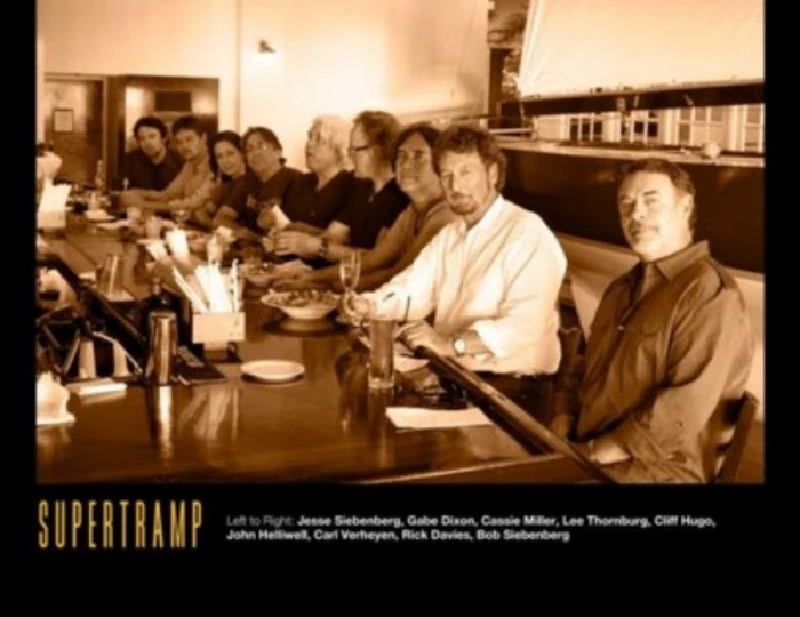
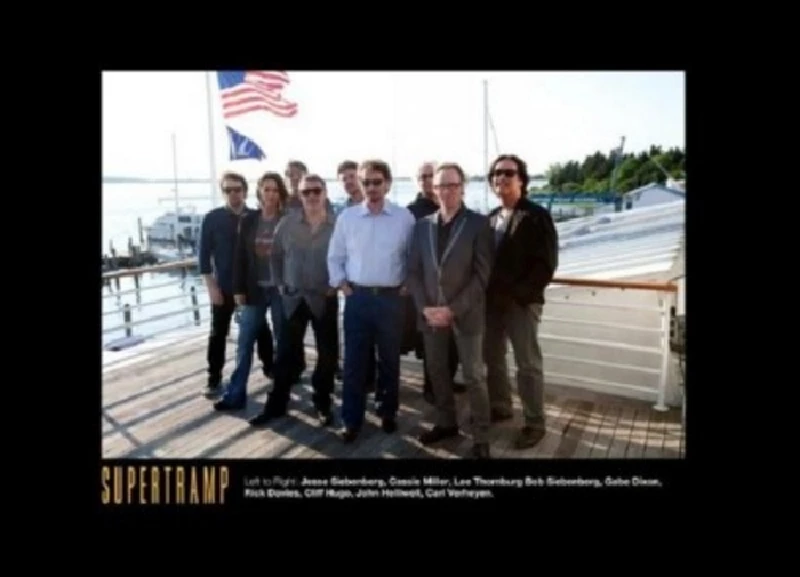
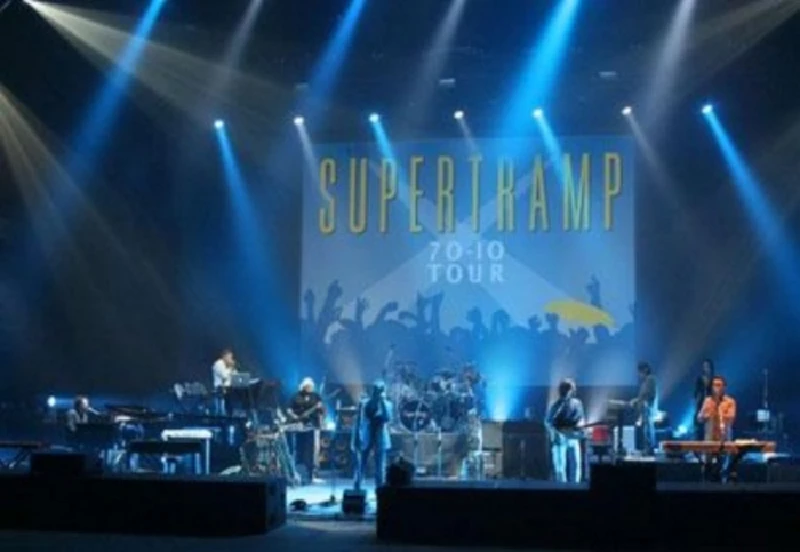
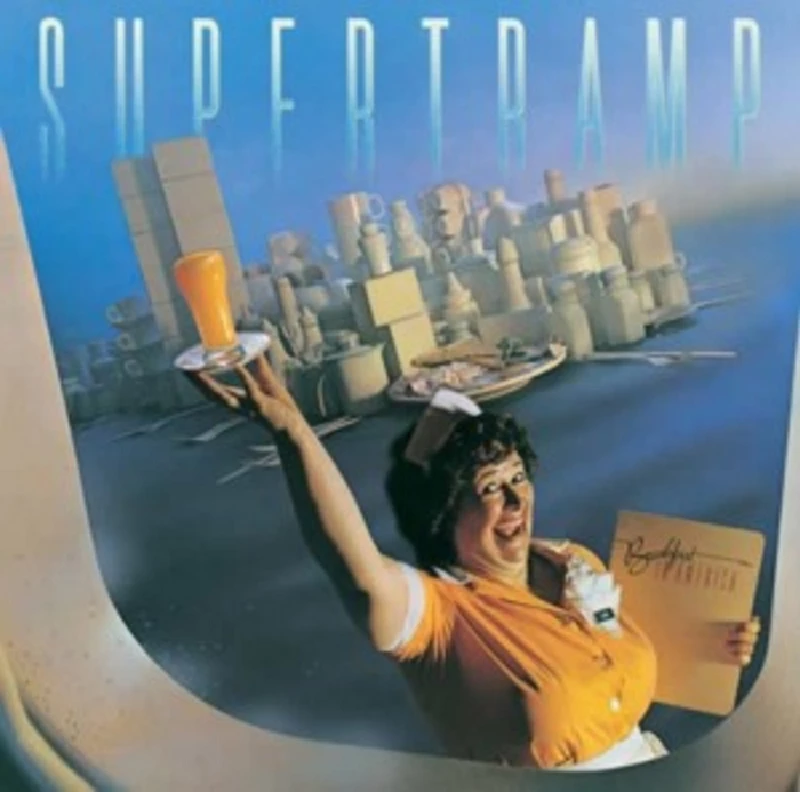
most viewed articles
current edition
Peter Doherty - Blackheath Halls, Blackheath and Palace Halls, Watford, 18/3/2025 and 21/3/2025Armory Show - Interview with Richard Jobson
Liz Mitchell - Interview
Deb Googe and Cara Tivey - Interview
Lauren Mayberry - Photoscapes
Max Bianco and the BlueHearts - Troubadour, London, 29/3/2025
Garfunkel and Garfunkel Jr. - Interview
Maarten Schiethart - Vinyl Stories
Clive Langer - Interview
Sukie Smith - Interview
previous editions
Heavenly - P.U.N.K. Girl EPBoomtown Rats - Ten Songs That Made Me Love....
Trudie Myerscough-Harris - Interview
Doris Brendel - Interview
Beautiful South - Ten Songs That Made Me Love...
Pulp - Ten Songs That Made Me Love...
Dwina Gibb - Interview
Kay Russell - Interview with Kay Russell
Barrie Barlow - Interview
Sound - Interview with Bi Marshall Part 1
most viewed reviews
current edition
Davey Woodward - Mumbo in the JumboNigel Stonier - Wolf Notes
Wings - Venus and Mars
Kate Daisy Grant and Nick Pynn - Songs For The Trees
Only Child - Holy Ghosts
Neil Campbell - The Turnaround
Philip Jeays - Victoria
Darkness - Dreams On Toast
Suzanne Vega - Flying With Angels
Charles Ellsworth - Cosmic Cannon Fodder
Pennyblackmusic Regular Contributors
Adrian Janes
Amanda J. Window
Andrew Twambley
Anthony Dhanendran
Benjamin Howarth
Cila Warncke
Daniel Cressey
Darren Aston
Dastardly
Dave Goodwin
Denzil Watson
Dominic B. Simpson
Eoghan Lyng
Fiona Hutchings
Harry Sherriff
Helen Tipping
Jamie Rowland
John Clarkson
Julie Cruickshank
Kimberly Bright
Lisa Torem
Maarten Schiethart